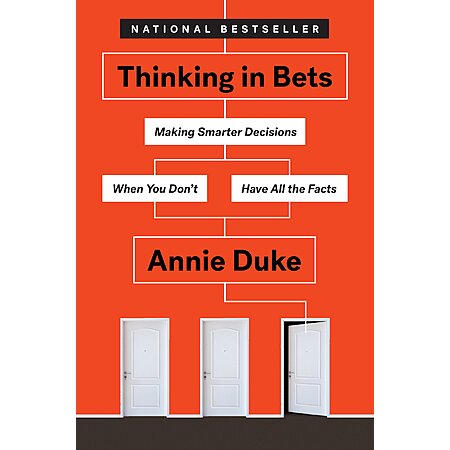expiredphoinix | Staff posted Feb 19, 2025 09:52 AM
Item 1 of 1
expiredphoinix | Staff posted Feb 19, 2025 09:52 AM
Thinking in Bets: Making Smarter Decisions When You Don't Have All the Facts (eBook)
$2.00
$14
85% offAmazon
Visit AmazonGood Deal
Bad Deal
Save
Share


Leave a Comment
Top Comments
16 Comments
Sign up for a Slickdeals account to remove this ad.
Leave a Comment